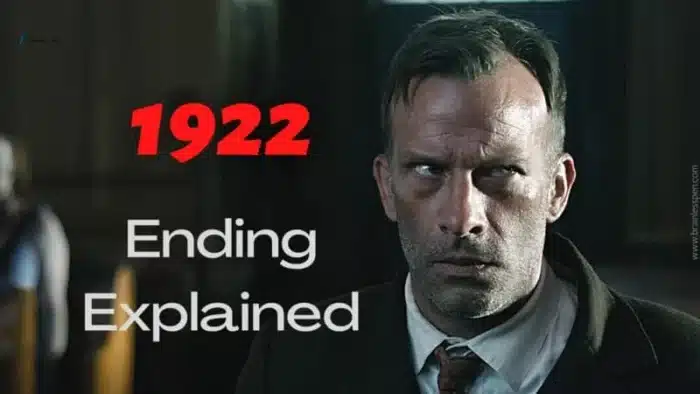Stephen King’s novella 1992 was adapted by Zak Hilditch in 2017, and it is a psychological horror film about crime and punishment. It goes in-depth on the results of guilty conscience, its manifestations, and how it affects offenders’ life. You will be guided through the most significant motifs, topics, and symbols in this article. Spoilers follow as we break down the movie 1922’s narrative and resolution.
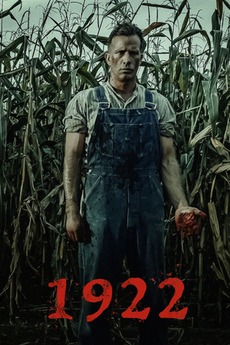
Oh, and if this post didn’t cover all of your questions, leave a comment here or send me a message on Facebook chat, and I’ll get back to you. Using the site’s search bar at the top, you can locate more film analysis.
Movie from 1922| Synopsis
1992 is a contemporary satire of the novel Crime and Punishment.
Wilfred (Wilf) James, his wife Arlette, and their son Henry reside on a farm in Nebraska (Hank). Arlette plans to sell her share of the land (her dowry) and leave the property because she despises being on a farm.
She makes an unsuccessful attempt to get Wilf to sell his part as well and follow her to the city, but this is irrelevant because she already holds the power of decision. Henry, who is 14 years old, is in her custody as a mother. She wants to sell the farm to a corporation that raises cattle, whose operations will contaminate even Wilf’s portion of the property (making it infertile and useless).
Arlette is the target of a murderous plot by Wilfred and Hank, who have fallen in love with the adjacent farmer’s daughter and stand to lose everything if Arlette gets her way. The two manage to commit the crime effectively because it takes place on a distant farm, but they are later tormented by their conscience.
In the end, a heist results in the deaths of Hank and his unborn sweetheart (trying to mimic the life of Bonnie and Clyde). We can only conclude that “In the end, we all get caught” as Wilf loses his possessions, his son, and ultimately his sanity.
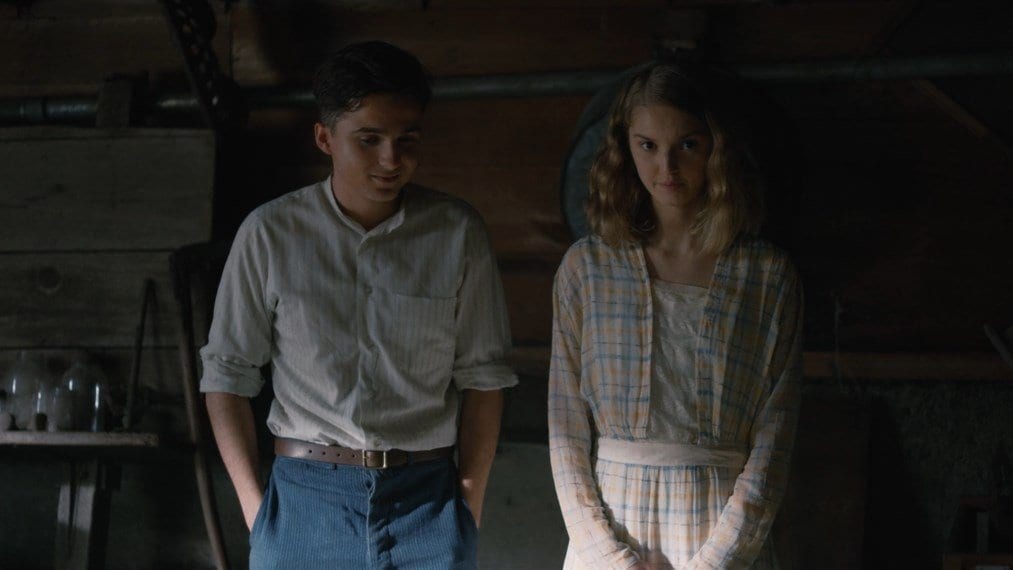
Movie from 1922 on the subject of crime and punishment
The Russian novelist Dostoyevsky dissects the idea of retribution in contemporary society in his novel Crime and Punishment. The bulk of us automatically think of legal repercussions when we hear the word punishment. There are no legal repercussions here, just like in Dostoyevsky’s writing. Does this imply that the penalty is also absent? Obviously not!
The fact that the three of them reside on a rural farm is an ideal circumstance in and of itself that presents a further temptation. Wilf and Henry can certainly avoid being found, after all. If they resided in an apartment complex or a small neighbourhood, they would have a lot of difficulty keeping this a secret. Getting rid of the body undetected would be nearly impossible, even with the blinds closed and effective sound-absorbing panels on the walls.
They are tempted to commit a crime, as we already stated, when there is no penalty. This is, however, only the case because the two disregard alternative forms of punishment. Their guilty conscience proves to be too much for them to bear, and it soon begins to affect Wilf’s mental health.
The Ironic Recurring Theme
Irony is one of the film’s most pervasive themes. Wilf kills his wife in an attempt to keep the farm, but ultimately loses it due to a domino effect from the killing. When he becomes unwell, he is unable to maintain it, which causes it to deteriorate. Due to this, Wilf incurs debt, and eventually the livestock company to which Arlette had originally planned to sell her land acquires possession of the farm. In other words, he failed to make any progress while losing everything.
Wilf’s wish to keep his kid on the farm is one of his other motivations for the murder. Henry eventually flees and dies as a result of his acts and Henry’s terrible conscience. Furthermore, Wilf involves his own kid in one of the most terrible acts possible while pretending to be protecting Henry and acting in Henry’s best interests.
In particular, Hank aids in the murder of his mother because she stood in the way of his love for Shannon. However, when Shannon becomes pregnant, the fathers of both of them forbid their marriage, rendering his own sacrifice absolutely pointless. Thus, he is left alone on the land after killing his wife and “driving away” his kid.
Last but not least, the subtlest example of irony is that Wilf avoided punishment only to be judged by his own awareness.
Symbols in the 1922 film, explained
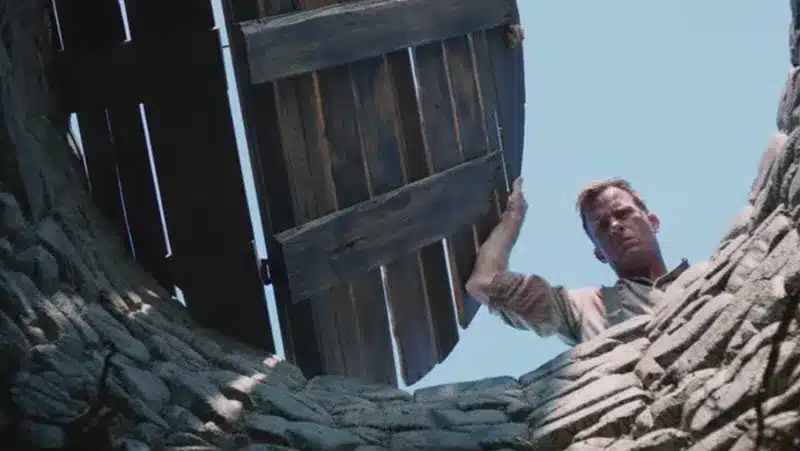
The movie itself is rife with all kinds of symbolism. The three most prevalent and important symbols from the movie 1922 are listed here.
Rats
The result of Wilf’s guilty consciousness is represented by rats. They initially show up soon after the murder and appear to be from the location where they buried Arlette. This symbolises their conscience emerging from an unspoken secret.
Nevertheless, the nest quickly seems to be irrelevant because Wilf is unable to escape rats no matter where he travels or how long he spends in hiding. This just serves to highlight their function as a physical representation of his own shame. In The Lighthouse (2019), Robert Pattinson’s Winslow experiences a similar situation in which he is unable to escape his past no matter how far he tries to hide.
The shape of a rat is also not accidental. First of all, it’s a rodent that almost all people find repulsive. It’s fairly uncommon for a guilty individual to experience physical disgust after seeing evidence of their own conduct.
Given that Wilf appears to be being eaten by rats in the movie 1922, the book and movie have slightly different endings. With a brief explanation that all of the “rats'” bite marks on his body were actually self-inflicted, the same thing occurs in the book. In other words, King makes it clearer in the book that Wilf is insane than that he is being subjected to a supernatural retribution.
Blood
Wilf and Hank appear startled at how much effort is required to erase the murder’s evidence immediately following the crime. It is exceedingly challenging to pack, lie, develop an alibi, and then remove blood. Literature frequently uses the motif of the guilty party being unable to wipe away the blood. For instance, Shakespeare’s Lady Macbeth obsessively scrubs her (physically clean) hands because she feels she can never wash the blood off when she is driven insane by her conscience.
Even though they are able to keep the murder a secret from the public, they will never be able to do so from themselves. In other words, all three of them (Hank, Wilf, and Lady Macbeth) are aware that they have blood on their hands even though no one else can see it.
Ghosts
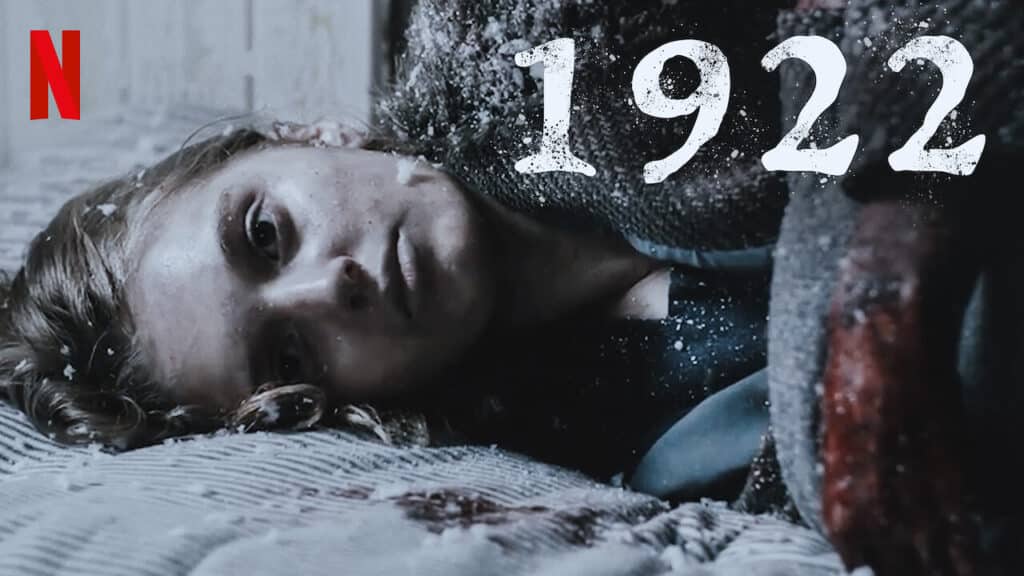
Arlette’s and Hank’s spirits are the two that Wilf runs into throughout the narrative. These two ghosts have the following things in common:
Show up when he is alone.
Represent those whose lives Wilf’s decisions directly ruined
These two characteristics lead logically to the conclusion that the ghosts, like the previously mentioned rats, stand in for his guilty conscience. The issue is that these ghosts also possess the following paranormal trait:
Omniscience
Arlette’s ghost is aware of the circumstances surrounding Hank’s death, whereas Hank’s ghost is aware of the precise moment and manner of his death (the event that neither she nor Wilf was present at). Both the author and the filmmaker speculate that this could possibly be some sort of heavenly punishment meted out to Wilf, leaving some potential for the supernatural in this situation.
Explained| The End of the 1922 Film
The movie 1922’s climax reveals that Wilf has gone insane as a result of his remorse over the murder of his wife and the expulsion of his son. He suffers a painful death while being tormented by his conscience after losing everything due to his greed.
Last but not least, although undoubtedly frightening and a potent deterrent, legal action is not the main thing preventing people from committing crimes. Even for individuals whose moral compass occasionally seems to malfunction, our own conscience can have a presence that is just as unsettling. Both King and Hilditch tried their utmost to demonstrate this.
What did you think of the 1922 movie’s story and climax? Please share your thoughts in the section below.
ALSO READ THIS : What is the meaning of the Cube Movie?
